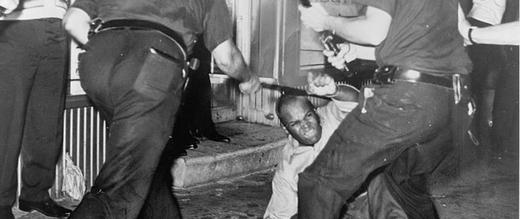The views expressed in our content reflect individual perspectives and do not represent the authoritative views of the Baha'i Faith.
Are human beings naturally violent?
We certainly have plenty of evidence for that conclusion, including six thousand recorded years of violent human history. We have all kinds of violence – self-directed, interpersonal and collective – that has plagued our species since its beginnings. Wars and their horrible consequences only serve to further indicate that the human species has naturally violent inclinations.
But we also have a growing body of evidence that humanity possesses a wealth of multiple natural mechanisms for cooperation and peacefulness. We have developed societal mechanisms to keep conflict in check, to channel aggression, and to overcome violent tendencies. A growing body of scientists has concluded that these peaceable behaviors come just as naturally to us as the aggressive, violent tendencies. We are both violent and peaceful, then, with twin tendencies that can lead us to either path. Which of those paths seems like the right one to you? For Baha’is, the path of peace far excels the path of violence and aggression:
A Baha’i denies no religion; he accepts the Truth in all, and would die to uphold it. He loves all men as his brothers, of whatever class, of whatever race or nationality, of whatever creed or colour, whether good or bad, rich or poor, beautiful or hideous. He commits no violence; if he is struck he does not return the blow. – Abdu’l-Baha in London, p. 56.
He does not return the blow. That simple but not-so-easy to accomplish idea of turning the other cheek may sound familiar to you if you’re a Christian, because Christ commanded his disciples not to return the blow. But you can find the concept of nonviolence in the original teachings of all of the great world religions. Gandhi recognized its roots in Hinduism; Buddhists like the Dalai Lama practice nonviolence daily; and the Baha’is emphasize and practice nonviolence in their dealings with all humanity:
Know thou, verily, the Sun of Truth hath shone forth with the lights of peace upon all regions. Strife and conflict will surely be removed from all the nations of the earth. Carnage shall be taken away; fighting, violence and reviling will be changed into universal reconciliation and the hosts of tranquility will pitch their tents in the midst of the world. Then the awning of the mercy of thy Lord will be hoisted and those souls who are free from the filth of prejudice, contradictions and presumption and are filled with a love that imparts affinity, intimacy, affection, meekness and humbleness will be sheltered under it. – Abdu’l-Baha, Tablets of Abdu’l-Baha, p. 424.
So what do we do with our violent impulses? If faith teaches us peace, but we want to lash out, how do we act?
Every person, at some point in life, feels the need to react violently, to strike out against an aggressor, to meet violence with violent resistance. Anyone who has ever been bullied or mistreated as a child knows the feeling. We naturally want to inflict the same pain on others that they have inflicted on us, and we store up the anger and the impulse for righteous vengeance that injustice imposes on us. When this happens, the pain of violence causes more violence, and the cycle continues. The only way to stop violence, Gandhi argued, is to respond peacefully. In much the same way, Abdu’l-Baha advises us to transmit our feelings of vengeance into qualities that lead to peace:
Now vengeance, according to reason, is also blameworthy, because through vengeance no good result is gained by the avenger. So if a man strikes another, and he who is struck takes revenge by returning the blow, what advantage will he gain? Will this be a balm for his wound or a remedy for his pain? No, God forbid! In truth the two actions are the same: both are injuries; the only difference is that one occurred first, and the other afterward. Therefore, if he who is struck forgives, nay, if he acts in a manner contrary to that which has been used toward him, this is laudable. The law of the community will punish the aggressor but will not take revenge. This punishment has for its end to warn, to protect and to oppose cruelty and transgression so that other men may not be tyrannical. But if he who has been struck pardons and forgives, he shows the greatest mercy. This is worthy of admiration. – Abdu’l-Baha, Some Answered Questions, p. 267.
You May Also Like
Comments


















How non-violent are we?
"If ye be slain it is better for you than that ye should slay. And when ye are tormented have recourse to the controllers of affairs and the refuge of the people; and if ye be neglected then entrust your affairs to the Jealous Lord. This is the mark of the sincere, and the characteristic of the ...assured." (Abdu'l-Baha, A Traveller's Narrative, p. 40) [He was apparently quoting Baha'u'llah there but I couldn't find the direct reference]
Now whether or not that's what I WOULD do... I am half Sicilian so I have a lot working against me in that department. I just have to keep thinking of Baha'u'llah and not Machiavelli. Lol